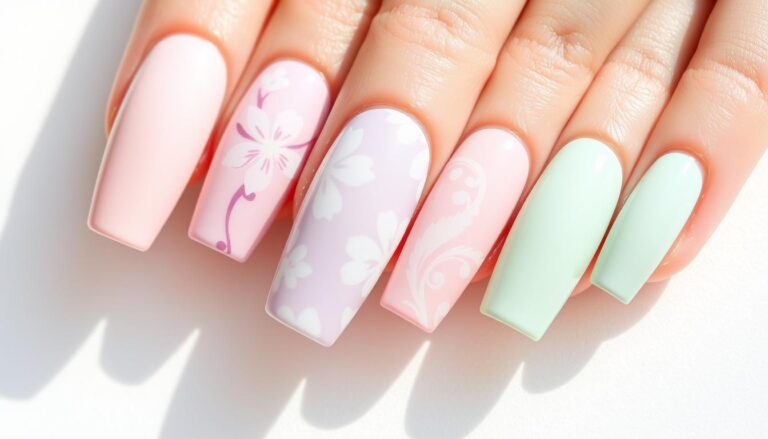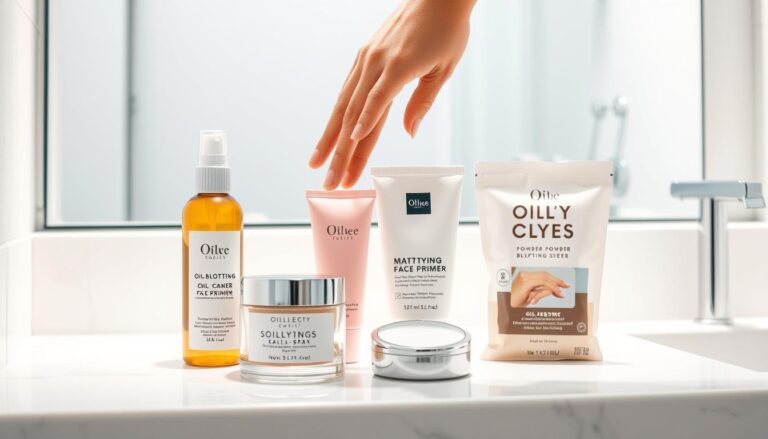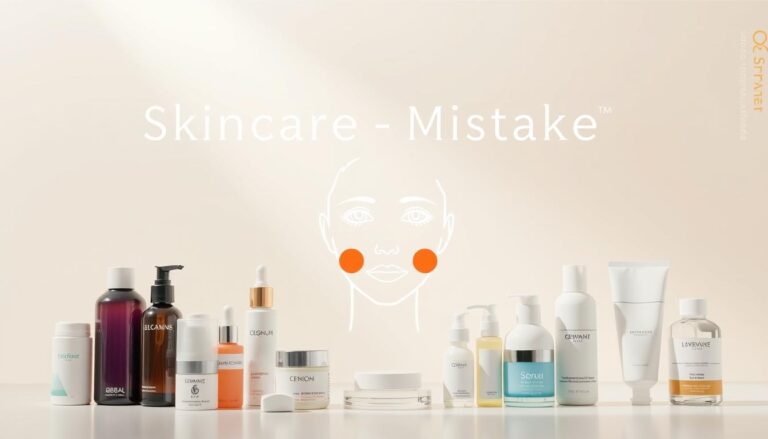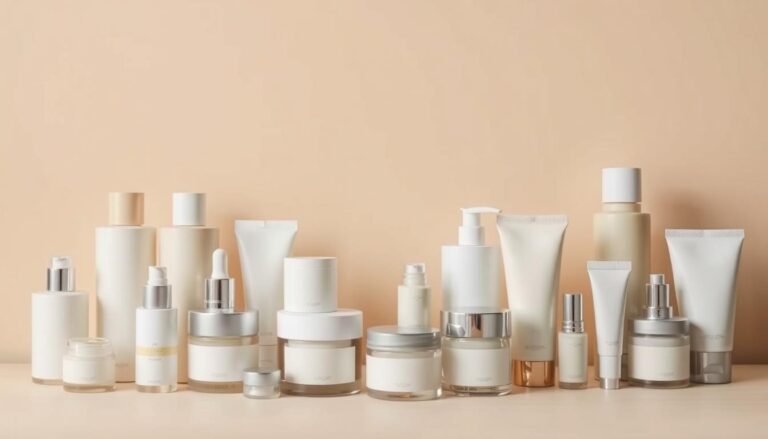Oral Health: 10 Best Tips for a Brighter Smile Today
Table of Contents
Your smile is more than just a facial expression—it’s a window to your overall health. Dental hygiene isn’t just about looking good; it’s about feeling confident and maintaining your body’s wellness. Imagine walking into a room with a radiant, healthy smile that speaks volumes about your self-care and vitality.
Oral health goes beyond brushing and flossing. It’s a comprehensive approach to preventing diseases, boosting self-esteem, and protecting your body from potential health risks. From heart disease to diabetes, the connection between your mouth and overall health is profound.
In this guide, we’ll explore ten transformative tips that will revolutionize your teeth cleaning routine and help you achieve optimal oral health. Whether you’re struggling with dental challenges or simply want to enhance your current routine, these strategies will empower you to take control of your dental wellness.
To maintain the safety and beauty of your mouth, you can use this nutritional supplement
Key Takeaways
- Oral health is directly linked to overall body wellness
- Consistent dental hygiene prevents serious health complications
- A healthy smile boosts confidence and social interactions
- Professional dental care is crucial for long-term health
- Simple daily habits can dramatically improve oral health
Understanding Oral Health Fundamentals
Your oral health is a window to your overall well-being. Good dental hygiene is more than a pretty smile. It’s key to avoiding serious health problems.
Dental research shows a strong link between oral health and overall wellness. In fact, 90% of adults have had cavities. This shows how common dental issues are.
The Connection Between Oral and Overall Health
Preventing gum disease is more than just tooth protection. Poor oral health can harm your whole body:
- Increases risk of cardiovascular diseases by 30%
- Potentially contributes to diabetes complications
- Linked to higher risks of respiratory infections
Common Dental Problems to Watch For
Knowing about tooth decay and bad breath management is crucial. Key issues include:
- Cavities: Affecting 57% of children and adolescents
- Gum inflammation: Can lead to serious systemic health risks
- Bad breath: Often a sign of underlying dental issues
| Dental Problem | Impact on Health | Prevention Strategy |
|---|---|---|
| Tooth Decay | Potential systemic inflammation | Regular brushing, fluoride treatments |
| Periodontal Disease | Increased cardiovascular risk | Professional cleanings, flossing |
| Halitosis | Social and psychological impacts | Proper oral hygiene, tongue cleaning |
The Role of Preventive Care
Preventive dental care can cut cavities by up to 25%. This is thanks to community water fluoridation and regular check-ups. Your proactive steps can save health and money on dental treatments.
Prevention is always better than cure when it comes to oral health.
Essential Daily Brushing Techniques
Good dental hygiene begins with brushing your teeth right. Your daily brushing is key to a healthy smile. Most dentists say a smart brushing plan is essential.
For clean teeth, brush regularly and correctly. Here’s what makes a great brushing routine:
- Brush for a full two minutes twice daily
- Use a soft-bristled toothbrush
- Hold your toothbrush at a 45-degree angle to the gum line
- Use gentle, circular motions
- Clean all tooth surfaces, including inner and outer sides
Choosing the right toothbrush is important. Look for soft bristles that clean well without harming your teeth or gums. Electric toothbrushes are great for those who have trouble brushing.
Don’t forget to clean the inside of your teeth and your tongue. These areas can hide bacteria that cause bad breath and dental problems. Change your toothbrush every three to four months for best results.
Brushing is not just about clean teeth—it’s about protecting your overall health and preventing potential complications.
Use fluoride toothpaste to strengthen your teeth and prevent cavities. Spending four minutes a day brushing keeps your smile healthy for life.
The Power of Proper Flossing Methods
Dental hygiene is more than just brushing. Flossing is key to preventing gum disease and keeping teeth healthy. Skipping this step can cause big dental problems later.
Flossing gets rid of plaque and food bits your toothbrush misses. Sadly, only 30% of adults floss every day. Yet, it’s crucial for good oral health.
Types of Flossing Tools
There are many ways to floss effectively:
- Traditional dental floss
- Floss picks
- Water flossers
- Interdental brushes
Step-by-Step Flossing Guide
- Start with 18 inches of floss
- Wrap it around your middle fingers
- Slide it gently between your teeth
- Curve it around each tooth
- Use a new section for each tooth
When and How Often to Floss
Dentists say to floss once a day for best gum health. It’s best to floss before brushing. This lets toothpaste reach more areas.
“Flossing is not optional – it’s essential for comprehensive dental hygiene.” – American Dental Association
| Flossing Method | Plaque Reduction | Gingival Health Impact |
|---|---|---|
| Traditional Floss | 60-70% | Moderate Improvement |
| Water Flosser | 80-90% | Significant Improvement |
Spending just a few minutes each day on flossing can greatly lower your risk of cavities. It helps keep your smile healthy.
Smart Dietary Choices for Dental Health

Your diet is very important for keeping your teeth healthy. The foods you eat can either help or hurt your teeth. Knowing how different foods affect your teeth is crucial for a healthy smile.
Harmful bacteria in your mouth turn sugars into acids that damage tooth enamel. By choosing the right foods, you can protect your teeth and keep them healthy.
Foods That Protect Your Teeth
- Calcium-rich dairy products strengthen tooth enamel
- Crunchy fruits and vegetables stimulate saliva production
- Protein sources help rebuild dental minerals
- Water helps rinse away food particles
Nutrients Essential for Oral Health
| Nutrient | Food Sources | Dental Benefits |
|---|---|---|
| Calcium | Milk, cheese, leafy greens | Rebuilds tooth enamel |
| Vitamin C | Strawberries, bell peppers | Supports gum health |
| Phosphorus | Nuts, eggs, fish | Strengthens tooth structure |
It’s important to limit sugary and acidic foods to manage bad breath and prevent tooth decay. Moderation is key for keeping your teeth healthy through what you eat.
“Your mouth is a window to your overall health. Nourish it wisely.” – Dental Health Professionals
A balanced diet and good oral hygiene are the basics for a healthy smile for life.
Professional Dental Care and Regular Check-ups
Keeping your teeth clean is more than just brushing and flossing. Getting professional dental care is key to keeping your mouth healthy and avoiding problems.
Going to the dentist regularly is a must for good oral health. Dentists say you should go at least twice a year. This is for cleanings and to check how your teeth and gums are doing.
“Prevention is always better than cure, especially when it comes to your dental health.”
Importance of Professional Cleanings
Professional cleanings are crucial for your teeth and gums. They help:
- Get rid of hard-to-clean tartar and plaque
- Spot gum disease early
- Stop tooth decay before it starts
- Give you tips on how to keep your mouth clean
What to Expect During Dental Visits
A dental visit includes a few important steps:
- A full check of your mouth
- A deep clean of your teeth
- X-rays if needed
- A check for oral cancer
Choosing the Right Dental Provider
Finding the right dentist is important. Look for one who:
- Offers full periodontal therapy
- Uses the latest in dental care
- Focuses on you, the patient
- Is an expert in preventing problems
Pro tip: Make sure to schedule your dental visits regularly. This helps keep your mouth healthy and catches problems early.
Advanced Oral Care Products and Technologies
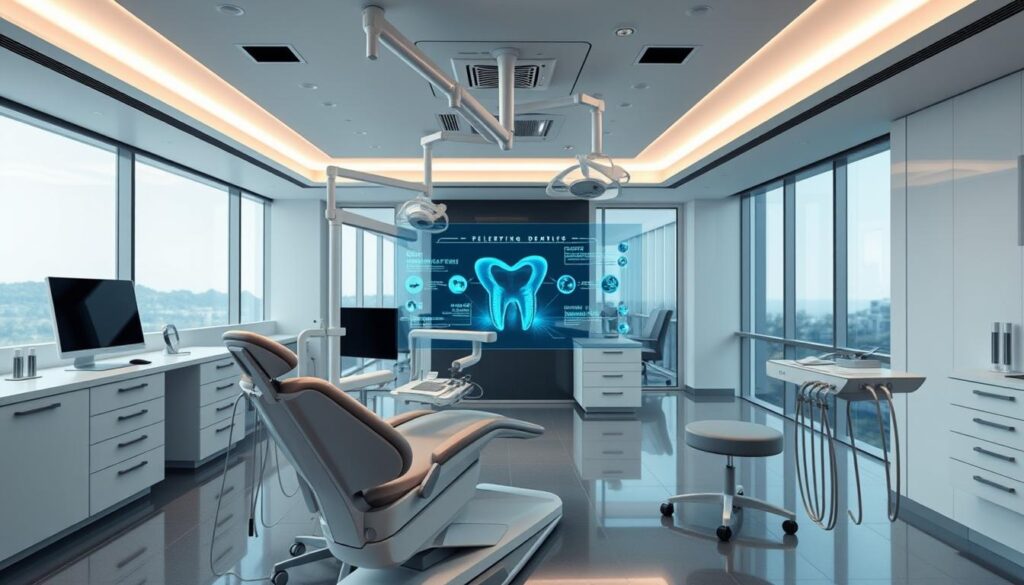
Modern dental technology has changed oral care a lot. It offers new ways to keep your teeth healthy. Today, you can find smart toothbrushes and advanced fluoride treatments that give you insights into your mouth’s health.
Smart toothbrushes use artificial intelligence to make brushing better. They have advanced sensors that:
- Track how long you brush and how well you do it
- Give you feedback on spots you might have missed
- Connect to apps on your phone for tips on oral care
- Show how well you’re brushing overall
Electric toothbrushes beat manual ones in cleaning. Studies show they remove plaque better. Some even use dental implants tech to clean more precisely.
New products are also changing how we care for our mouths:
- Water flossers clean between your teeth better
- Mouthwashes with special antimicrobial agents
- Tongue scrapers for a deeper clean
- Toothpastes that help with sensitivity
Office treatments have also gotten better. Laser dentistry and 3D imaging help doctors diagnose and treat more accurately. But, don’t forget the basics of good oral hygiene for a healthy smile.
Natural Remedies and Preventive Measures
Looking into natural ways to keep your mouth healthy can be very helpful. These methods help manage bad breath and prevent gum disease. They come from traditional healing practices that focus on the whole body, not just the teeth.
Oil Pulling: An Ancient Oral Cleansing Technique
Oil pulling is an old method that’s good for your mouth. Swishing oils like coconut or sesame in your mouth for 10-15 minutes can:
- Reduce harmful oral bacteria
- Support gum disease prevention
- Naturally whiten teeth
- Improve overall mouth hygiene
Herbal Solutions for Dental Wellness
Many herbs are great for keeping your mouth healthy:
- Neem: An ancient Ayurvedic remedy that fights bacteria
- Clove Oil: A natural pain reliever for teeth and gums
- Tea Tree Oil: A strong antibacterial mouthwash ingredient
- Sage: Helps cut down on oral bacteria
Lifestyle Changes for Enhanced Oral Health
Making some lifestyle changes can really boost your oral health:
- Quit smoking
- Limit alcohol consumption
- Manage stress effectively
- Practice consistent oral hygiene
While these natural remedies are promising, they shouldn’t replace dental care. Always talk to your dentist before trying new oral health methods.
Protecting Your Smile with Proper Equipment
Your dental care is more than just brushing and flossing. You need special gear to keep your teeth safe from harm. This gear helps prevent injuries and keeps your mouth healthy.
If you’re into sports or active, wearing a mouthguard is key. Dental injuries can hurt a lot and cost a lot to fix. Custom-made mouthguards are better than store-bought ones. They protect your teeth from impacts during sports or intense activities.
- Sports mouthguards protect against chipped or knocked-out teeth
- Custom-fitted guards provide maximum comfort and protection
- Professional orthodontics recommend specific guard types for different activities
Teeth grinding at night can damage your teeth. A nightguard made by a pro can stop tooth wear, ease jaw pain, and save your enamel. If you often get headaches or jaw pain, talk to your dentist about getting a nightguard.
After orthodontic treatment, wearing retainers is vital. They keep your teeth in line and prevent them from moving. Using retainers regularly keeps your smile straight and healthy.
Investing in proper dental protection equipment is an essential part of comprehensive oral health care.
When picking dental protection, talk to a dentist. They can suggest the best gear for you. Your teeth, lifestyle, and health needs will guide the right choice.
Addressing Common Oral Health Concerns
Oral health problems affect billions of people. Nearly 3.5 billion face oral diseases. It’s vital to know about common dental issues for good health.
Tooth decay is a big problem worldwide. About 2 billion have permanent tooth caries. Good oral health boosts confidence and helps in social interactions.
- Manage tooth decay through regular brushing
- Practice consistent periodontal therapy
- Address halitosis management techniques
Halitosis, or bad breath, has many causes. It can come from diet, bacteria, or health issues. Seeing a dentist helps find and fix the problem.
| Oral Health Concern | Prevention Strategy | Professional Treatment |
|---|---|---|
| Tooth Decay | Daily brushing, fluoride toothpaste | Dental fillings, sealants |
| Halitosis | Tongue cleaning, hydration | Deep cleaning, bacterial analysis |
| Periodontal Issues | Flossing, antimicrobial mouthwash | Scaling, root planing |
Oral health problems can hurt your mind too. Issues like tooth decay can lower self-esteem and cause anxiety. Taking care of your teeth and seeing a dentist can help.
Early detection and consistent oral hygiene are key to preventing long-term dental complications.
Oral Health Across Different Life Stages

Your journey with oral health is unique and changes a lot from childhood to senior years. Knowing these changes helps you keep your teeth healthy all your life.
For kids, getting them to the dentist early is key. Dentists say kids should see a dentist by age one. This helps start them off right with good oral health. Kids should learn how to brush their teeth well and make brushing a regular habit.
- First dental visit recommended by age one
- Brush teeth twice daily
- Begin flossing when teeth touch
- Use protective mouthguards during sports
Teenagers face special challenges with their teeth. Hormonal changes can affect their gums. About 78% of teens will get a cavity by age 17. This shows how important it is to take care of your teeth early on.
Adults need to watch out for gum disease more. People in their middle years should look for signs of gum disease early. They should also go to the dentist regularly. Things like stress, what you eat, and your lifestyle can affect your teeth and gums.
Older adults need special dental care. About 30% of seniors lose teeth, and many have dry mouth. Regular cleanings and special care can help keep their teeth and mouth healthy.
Your oral health is a lifelong journey of prevention and care.
By knowing and meeting your dental needs at each stage of life, you can keep your smile and health for many years.
Conclusion: Your Path to a Healthier, Brighter Smile
Your journey to better oral health is a lifelong promise. It goes beyond just brushing your teeth. Good dental hygiene is key to your overall health, linking your mouth to your body’s well-being.
By following the tips in this article, you can change your oral care for the better. This protects you from health risks.
Regular dental visits, daily flossing, and brushing are key to a healthy smile. Your oral health affects more than just your teeth. It also impacts your heart, immune system, and mental health.
Gum disease can lead to serious conditions like heart disease and diabetes. This shows how important good dental care is.
By caring for your teeth, you avoid expensive treatments and reduce disease risks. Simple steps like drinking water, eating healthy, and using the right dental tools help a lot. A healthy mouth means a healthier you.
Start taking care of your oral health today. Make sure to visit your dentist regularly and follow a good daily care routine. Your smile is an investment in your health and happiness.
FAQ
How often should I visit the dentist for a check-up?
Most dentists say you should go twice a year. This is every six months for check-ups and cleanings. But, if you have special oral health needs, you might need to go more often. Your dentist will tell you what’s best for you.
What’s the correct way to brush my teeth?
Use a soft-bristled toothbrush and toothpaste with fluoride. Hold your brush at a 45-degree angle to your gums. Brush in gentle, circular motions for two minutes.
Make sure to brush all your teeth’s surfaces. Don’t forget your tongue to remove bacteria and prevent bad breath.
How important is flossing really?
Flossing is very important for your teeth. It gets rid of plaque and food bits between your teeth. This stops cavities and gum disease.
Dentists say to floss once a day. It keeps your mouth clean and healthy.
Can diet really impact my oral health?
Yes, your diet affects your teeth. Foods high in sugar and acid can harm your teeth. But, foods rich in calcium and fruits and veggies can help.
Drinking water and eating less sugar can also help your teeth stay healthy.
What are the signs of gum disease?
Signs of gum disease include red, swollen, or bleeding gums. You might also have bad breath, receding gums, or loose teeth. If you notice these, see a dentist right away.
Are electric toothbrushes better than manual ones?
Electric toothbrushes can clean better than manual ones. They often have timers and help you brush right. But, the most important thing is how well you brush, not the type of toothbrush.
How can I prevent tooth sensitivity?
To avoid tooth sensitivity, use a soft toothbrush and toothpaste for sensitive teeth. Stay away from acidic foods and drinks. Use fluoride mouthwash and consider a nightguard if you grind your teeth.
If sensitivity doesn’t go away, talk to your dentist about what to do next.
Are natural remedies effective for oral health?
Some natural remedies like oil pulling can help. But, they shouldn’t replace regular dental care. Always talk to your dentist and keep up with brushing, flossing, and check-ups.
At what age should children start dental visits?
The ADA says kids should see a dentist by their first birthday. Or within six months of their first tooth. Early visits help with good oral habits and catch problems early.
How can I manage dental anxiety?
Talk to your dentist about your fears. Try deep breathing or bring someone you trust. Use headphones to block out noise or ask about sedation options. Many offices have ways to make you feel more at ease.
To maintain the safety and beauty of your mouth, you can use this nutritional supplement




